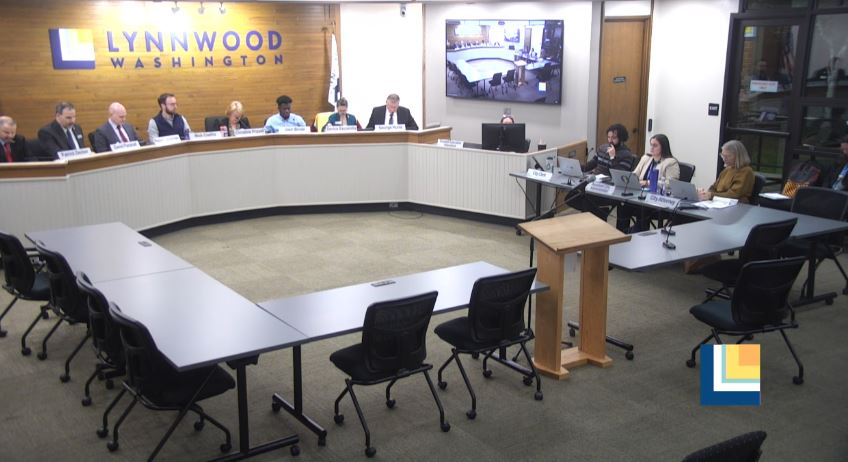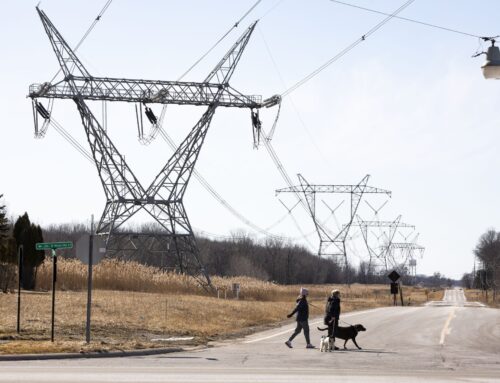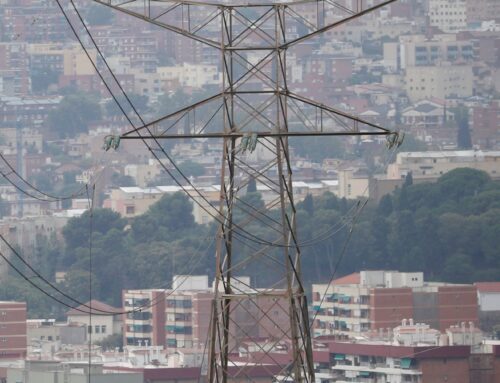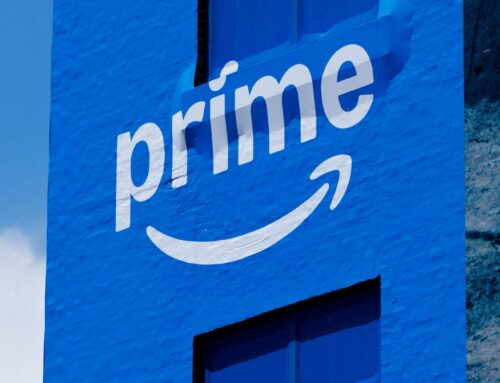Lynnwood Council approves retail cannabis within city limits
September 23, 2025
LYNNWOOD—In a 5-2 vote, the Lynnwood City Council during it Monday, September 22 Business meeting, approve an ordinance permitting retail cannabis businesses in specific zones within city limits. The ordinance establishes regulations for up to four retail cannabis businesses, with priority given to existing title certificate holders issued by the Washington State Liquor and Cannabis Board (LCB).

Community Planning Manager Karl Almgren shared that a copy of the ordinance will be published in the City’s newspaper of record for five days, after which the city will begin processing business licenses for retail cannabis. This process will involve thorough review to ensure compliance with the new regulations, he said.
The main motion, moved by Councilmember Hurst and seconded by Council Vice President Josh Binda passed with Councilmembers Josh Binda, Goerge Hurst, Derica Escamilla, Nick Coelho, and Robert Leutwyler voting in favor, and Councilmembers Patrick Decker and David Parshall voting against.
Hurst emphasized Lynnwood’s business-friendly stance, stating, “How can we continue to ban entrepreneurs from opening a retail business that is lawful and very well regulated?”
Parshall, who voted against the motion, expressed concerns about high-potency cannabis, particularly its impact on youth under 25.
“I believe high-potency cannabis has been shown to be extremely dangerous, especially to our youth,” Parshall said, citing studies linking it to mental health issues like schizophrenia. He argued that expanding “for-profit addiction” was not in Lynnwood’s interest and lamented the lack of compromise on restricting high-potency products.
“I realize that there are some addictive substances that are already sold within the city of Lynnwood,” Parshall said. “That does not mean that’s a good reason to expand for-profit addiction within the boundaries of Lynnwood. I am also going to vote no on this because I believe I’m protecting our most vulnerable citizens.”
The council considered several amendments to refine the ordinance, with three successfully incorporated into the final motion.
Amendment 3: Reducing Buffer Distance to 100 Feet: This amendment revised LMC 8.35.0345.A.2 to reduce the buffer distance for certain business entities, such as recreation centers, from 300 feet to 100 feet.
Councilmember George Hurst, who moved the amendment, emphasized it aligned with prior council consensus to treat cannabis businesses similarly to other age-restricted businesses. Council President Nick Coelho supported the change, noting it prevents clustering by expanding viable locations and avoids the issues faced by neighboring Edmonds, where restrictive buffers led to concentrated cannabis businesses.
“This gets us closer to treating cannabis businesses like every other age-gated business in our city,” Coelho said.
However, the Planning Commission had recommended a 300-foot buffer, citing concerns about proximity to the Alderwood Boys & Girls Club and an opioid treatment facility. Buffers cannot be reduced from the 1,000-foot restriction for any primary, secondary schools or public playgrounds per state law.
The amendment passed 5-2, allowing retail cannabis within 100 feet of businesses and residential areas with Councilmembers Coelho, Hurst, Escamilla, Leutwyler, and Binda voting yes, and Councilmembers Decker and Parshall voting no.
According to research by the Lynnwood Times, the city now has one of the most “relaxed” cannabis laws in the state of Washington, including the City of Seattle that has a 350-foot minimum. Below the buffer zones approved by a few municipalities along I-5:
- City of Mukilteo: 1,000 feet buffer zone [Link]
- City of Edmonds: 1,000 feet buffer zone [Link]
- City of Everett: 1,000 feet buffer zone [Link]
- City of Bellingham: 1,000 feet [Link]
- City of Vancouver: 1,000 feet [Link]
- Snohomish County: 1,000 feet [Link] of schools.
- City of Olympia: 500 feet [Link]
- City of Seattle: 350 to 500 feet [Link]
- City of Tacoma: 100 feet [Link]
Amendment 6: Requiring Medical Marijuana Certification: Amendment 6 added LMC 8.35.0345.A.7, mandating that all retail cannabis stores in Lynnwood be certified as medical marijuana providers by the Washington State Liquor and Cannabis Board.
Councilmember Coelho, who proposed the amendment, argued it ensures higher standards through additional staff training for serving medical clients and improves access to medicinally aligned products.
“This is about access to products that people need,” Coelho stated.
The amendment was seen as a way to address community needs while maintaining rigorous oversight.
It passed 6-1, with Councilmembers Escamilla, Hurst, Parshall, Leutwyler, Coelho, and Binda voting in favor, and Councilmember Decker opposing.
Amendment 7: Removing Future Parks and Playgrounds from Buffer Restrictions: This amendment removed LMC 8.35.0345.A.1(c) and 8.35.0345.A.2(d), eliminating buffer restrictions for future parks and playgrounds, such as Town Square Park and Northline Village.
Councilmember Hurst, who introduced the amendment, argued that restricting businesses based on speculative future developments, some planned decades out, was impractical. He cited the example of Row Park, purchased in 2000 but only recently advancing toward development, and noted that Town Square Park’s near-term plans include a temporary “playscape” not equivalent to a permanent playground.
Coelho, initially in favor of including future parks, reversed his stance, stating, “Including that all but eliminates possibilities for the densest and most walkable part of our city to have a retail cannabis business.”
He highlighted the importance of walkability in Lynnwood’s urban core.
The amendment passed 5-2, with Councilmembers Binda, Hurst, Escamilla, Leutwyler, and Coelho voting yes, and Councilmembers Decker and Parshall voting no.
Failed Amendments and Clustering Concerns
Several proposed amendments did not pass, including efforts to impose buffers between cannabis businesses to prevent clustering. Amendment 2, which proposed a 1,000-foot buffer between retail cannabis stores, was rejected 7-0.
Councilmember Coelho supported the concept to avoid clustering but withdrew support due to unclear language about businesses outside Lynnwood’s jurisdiction.
Councilmember Leutwyler opposed the amendment, arguing that market competition, like that between fast-food chains, should dictate locations without artificial buffers. C
Amendment 9, which sought to maintain a 300-foot buffer specifically for recreation centers like the Boys & Girls Club, also failed 4-3, with concerns that it overly restricted viable locations.
Cannabis Background
As of today, there are no recreational cannabis stores within Lynnwood city limits, despite four licenses (or title-certificates) allocated to the city by the state. All four of these licenses, which are issued by the Washington State Liquor and Cannabis Board, are accounted for by individuals who must wait for the City’s approval before they are reinstated as retail licenses. There are, however, retail cannabis stores nearby Lynnwood whose official border jurisdictions fall within unincorporated Snohomish County.
Washington State voters approved I-502 in 2012, which legalized the production, processing, and retail sales of cannabis. In response, the City of Lynnwood enacted a series of moratoriums prohibiting the sale of retail cannabis within city limits beginning in June 2013, through February 2015.
A City ordinance, 3136, adopted June of 2015, revoked these moratoriums and implemented a final prohibition of retail sales, production and processing, and medical marijuana collective gardens.
As it stands the list of restricted entities include elementary or secondary schools, public playgrounds, recreation centers or facilities, childcare centers, public parks, public transit centers, libraries, and game arcades where admission is not restricted to persons aged 21 or older (by state law).
Earlier this year, Council heard from both Washington Representative Lauren Davis, who urged council to consider retail cannabis’ effects on community health; as well as lobbyists in favor of allowing retail cannabis.
On September 23, 2024, City Council motioned for the Planning Commission to review current zoning limitations and restrictions pertaining to retail cannabis within city limits. The Planning Commission returned with their recommendations on March 27, 2025, though Council expressed the need for additional clarification.
On April 21, 2025, the Planning Commission returned to brief council on recommendations to allow retail cannabis in the following zones: Highway 99 Mixed-Use (HMU), General Commercial (GC), and Alderwood (A) zone subject to the following conditions: provide a minimum 1,000-foot buffer in the Highway 99 Mixed-Use and General Commercial zones for restricted entities, provide a minimum 300-foot buffer in Alderwood zone for restricted entities which are allowed a reduced buffer, and require landscaping, parking, and other standards required for retail use in the underlying zones. The Planning Commission also recommended the city reevaluate the City Center zone for retail cannabis after construction of Town Square Park.
Council affirmed on April 28, 2025, that retail cannabis should be allowed within Lynnwood and approved a project schedule for Council consideration of an ordinance on September 22, 2025.
Public Hearing: Lynnwood Public Facilities District Master Plan and Development Agreement
The City of Lynnwood held a public hearing on Monday, September 22, to hear public testimony regarding the proposed Development Agreement of its Master Plan. The LPFD is expected to vote on the Development Agreement on October 7 and the Council is scheduled to vote on October 13.
Ben Wolters, Development and Business Services Director provided an overview of the Development Agreement, emphasizing its alignment with the City Center plan and its public benefits, such as economic growth, public infrastructure, affordable housing, and open spaces.
“The proposal is well within the goals and purposes and requirements of the City Center downtown plan,” Wolters said. “It provides mixed-use development for housing, retail, hotel. It provides green space. It accounts for an expanded event center and the opportunity for some potential outdoor event space.”
This Master Plan seeks to transform the surrounding 1960’s era shopping mall into a 13-acre town square with public plazas, downtown open space, festival streets, 80,000 square feet of commercial spaces for local Pacific Northwest retailers, a new hotel, a 550-stall parking garage with a new City Center ring road, and privately developed workforce apartments serving households with 60-80% of area median income.

The Project promotes public benefits like economic growth, job creation (estimated 500 permanent jobs post-construction), and tax revenue ($3 million annually projected), while providing development certainty for The District over a 15-year term.
The total estimated project cost is around $600 million, with potential City investment of $270 million via bonds and private contributions of $320 million.
In the Development Agreement, the City of Lynnwood would take on responsibility for construction of an extension of 194th St and a new 38th Ave to form a Ring Road for circulation, access, and connection to future City Center street grid. The current estimated cost of the proposed Ring Road project is $18 million. Funding would come from a combination of grants, tax increment financing (TIF), and City capital funds.
The Project involves demolishing ~76,500 square feet of existing commercial buildings, expanding the existing 64,000-square-foot Event Center, and adding new multifamily housing, hotel, commercial spaces, structured parking, plazas/open spaces, utilities, and roads. Soil remediation for historical contamination (from dry cleaning and auto services) is required per Washington Department of Ecology standards. The site will feature ground-floor retail activation and public amenities to enhance walkability and event hosting (up to 2,500 attendees).
Lynnwood resident Ted Heichel expressed concerns about the development’s impact on the adjacent single-family neighborhood, particularly regarding insufficient parking, noise from outdoor events, and financial burdens on the city.
He criticized the agreement’s vagueness (e.g., “blank pages” in attachments) and the city’s potential liability for PFD debts, including a $15 million loan backed by the city. Heichel also worried about the precedent set by allowing taller buildings closer to residential areas and questioned the adequacy of parking provisions (1.5 spaces per apartment unit).
Wolters clarified the flexibility in the Development Agreement, which includes three housing scenarios: a low-density option (~400 multifamily units), a medium-density option (up to 550 units), and a high-density option (up to 795 units) if the proposed 300-room hotel does not materialize. These scenarios align with the City Center subarea plan’s environmental impact statement and mitigation measures for infrastructure like roads and utilities.
Rosemary Graziani, representing 21 petition signers, voiced concerns about the development’s impact on her quiet cul-de-sac (192nd Street). She highlighted parking shortages, predicting that new apartment residents would park in nearby neighborhoods due to insufficient on-site spaces (1.5 per unit). She urged the council to require two parking spaces per unit, preserve existing trees as noise buffers, and ensure developers, not the city, bear infrastructure costs.
Wolters shared that surface parking will be available during interim phases, with a dedicated parking garage for the event center and potential hotel parking.
Ray Liao, Legal Counsel for LPFD, reinforced that the Development Agreement adheres to city codes, with minor modifications supported by mitigation measures (e.g., landscaping, noise control). The planned parking garage and surface parking for the project will address parking needs, with exceptions for large events managed through permits or shuttle services, she said.
Chip Peterson, Hilton Garden Inn General Manager, supported the Development Agreement, emphasizing its economic benefits for the city including increased tourism, job creation, and tax revenue from an expanded event center and new hotel. As a member of the Tourism Advisory Committee, he argued that the project would make City Center a regional destination, benefiting local businesses despite potential competition for his hotel.
Councilmen Goerge Hurst raised concerns about the city’s current Multifamily Tax Exemption (MFTE) ordinance and asked Wolters whether the Development Agreement would lock in the proposed ordinance or allow developers to apply under a future, updated ordinance.
Wolters clarified that it does not lock in the current MFTE ordinance and allows developers to apply under future ordinances.
Other City Business
- Cory Palmer was appointed to the History and Heritage Board with a term ending December 31, 2026
- City Council approved Proclamation: Indigenous Peoples Day
- City Council Proclamation: Domestic Violence Awareness Month
- City Council Proclamation: Leadership Day 2025

Search
RECENT PRESS RELEASES
Related Post









